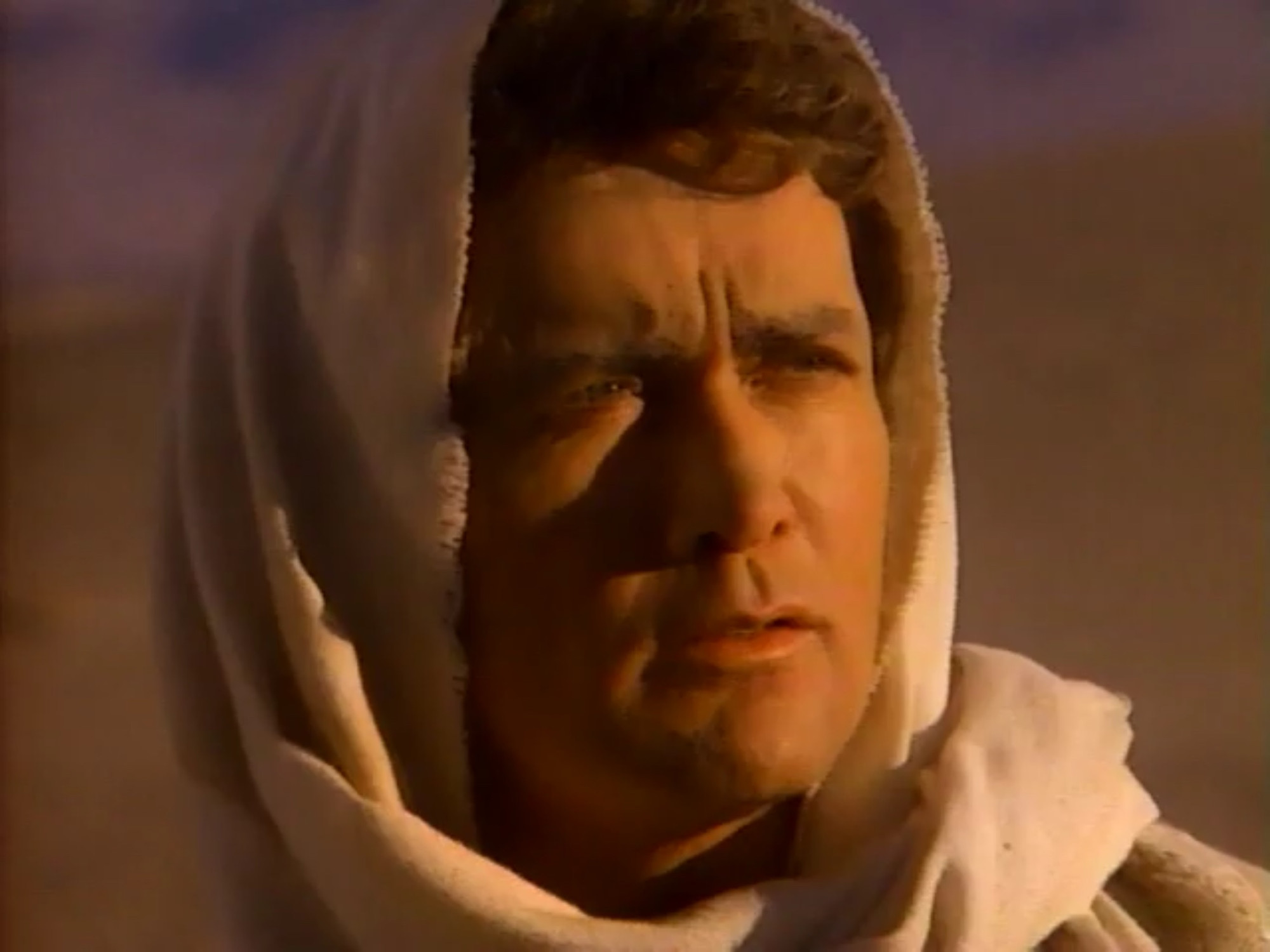The Fourth Wise Man (1985)
Top of my list is The Fourth Wise Man (1985) starring Martin Sheen and Alan Arkin, as well as Charlie Sheen in a bit part role. The film is an adaptation not only of the Gospels, but also of Henry van Dyke's 1895 book "The Other Wise Man", itself a reworking of the Befana/Babushka stories from Italian/Russian folklore. As the title suggests, the film features Sheen (snr.) as Artaban, another wise man, who misses his rendezvous with his now-more-famous colleagues. Instead of seeing Jesus in Bethlehem he spends the next 30 years trying to catch up with him, repeatedly getting distracted by people who need his help, unable to resist the yearning to do something for them rather than follow the saviour. And of course it turns out that he was "following" him all the time.
This is not the only time the story has appeared on our screens. Another TV movie, The Other Wise Man was broadcast in 1953 and narrated by none other than Ronald Reagan. More recently, an animated film, The Fourth King reached our screens in 2007 and featured as part of our family's Christmas viewing for a few years.
Unsurprisingly, Sheen is good value in the lead role. The way his character lays aside his privileged background to focus on folksy, pragmatic, leadership tackling problems affecting those on the margins of society, feels strongly reminiscent of his role as President Bartlett in The West Wing in what feels like another world these days. Artaban is a physician as well as a magi and inevitably ends up helping those who need his medical insights rather than his astrological ones.
Arkin, almost 20 years after his Academy Aware nomination for The Russians Are Coming the Russians Are Coming (dir. Norman Jewison, 1966), provides some of his trademark pithy humour. He plays Orontes, Artaban's world-weary slave, on a promise from Artaban's father of gaining his freedom if he returns his son to him safely. As Artaban's mission extends indefinitely he comes to resent the supposed humanity of his master's compassionate side which keeps him trapped in servitude indefinitely. Only when he tries to leave does he realise the innate worth of the life he has lived.
Both men seemed to involve their families in the production. In addition to Charlie Sheen's cameo, his brother and his sister Ramón and René were in the cast, as was their uncle (and Martin Sheen's brother) Joe Estévez -- thanks to Angel Sanchez's review for that observation. Similarly Arkin's then wife Barbara Dana and son Adam also make brief appearances. Veteran's Eileen Brennan and Ralph Bellamy round out the cast. James Farentino, best known round these parts for his portrayal of Simon Peter in Jesus of Nazareth (1977) provides the voice of the adult Jesus as the film draws towards its conclusion.
Nevertheless. the production itself is fairly unremarkable and a little on the corny side at times (even by the standard of biblical Christmas movies). You don't have to be familiar with the source material to spot that Artaban is going to spend his life being so distracted by living as Jesus would want him to that he never manages to encounter Jesus himself until it's too late.
It's a funny myth in some ways because if the story rests on Jesus being some kind of revelation of a higher moral code, it also suggests that those characteristics can spring up regardless of whether one is familiar with Jesus and his message. Readers will have their own views on which of those two tenets they favour, but acknowledging both seems a little inconsistent. But then this tension goes back to the Bible itself, as typified in Matthew 25:37-40, which ends up being directly quoted by the screenplay late in the film.
Michael Ray Rhodes's direction is workmanlike, if uninspired and the low budget of the production and its 80s TV vibe do little to help matters. Nonetheless, its message that following Jesus means preferring the needs of the poor and vulnerable to our own personal goals, still seems to be one that many who take his name need to do more to acknowledge.
Labels: Nativity - Mary Joseph















0 Comments:
Post a Comment
<< Home